If you are considering a holiday in Africa, countless incredible destinations await your exploration. Namibia, located along the Atlantic coast, offers a diverse mix of landscapes and is certainly worth a visit. The country boasts a unique blend of wildlife, breathtaking scenery and rich cultural diversity. From towering dunes and rugged mountains to awe-inspiring sunsets, Namibia's natural beauty is nothing short of extraordinary. It ranks as one of the largest countries in Africa and the 34th largest in the world, with a low population density of just 3.2 inhabitants per square kilometre. Considered one of the safest countries in Africa, Namibia has enjoyed political stability and good governance since gaining independence from South Africa in 1990. Whether you choose a guided or self-guided tour, here is a list of must-see places in Namibia.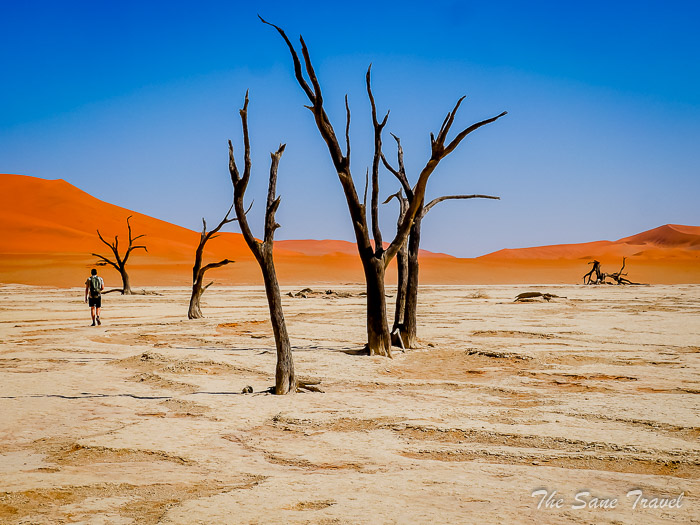
1 Windhoek
Windhoek, the capital of Namibia, is the country's main entry point and serves as a convenient starting place for exploring the nation. The city boasts a mix of traditional and modern influences from African and European cultures, providing visitors with a diverse experience. Despite its small size, Windhoek is a cosmopolitan and welcoming destination with a vibrant atmosphere. The city centre, particularly Independence Avenue, is easily navigable on foot, making it ideal for sightseeing. Must-see attractions include Tintenpalast, Christuskirche and Independence Memorial Museum. Tintenpalast, also known as the Palace of Ink, houses Namibia's parliamentary buildings and has a rich history that dates back to the German colonial era. Christuskirche, a striking Lutheran church, blends neo-gothic and art nouveau styles and was constructed in the late 19th century. 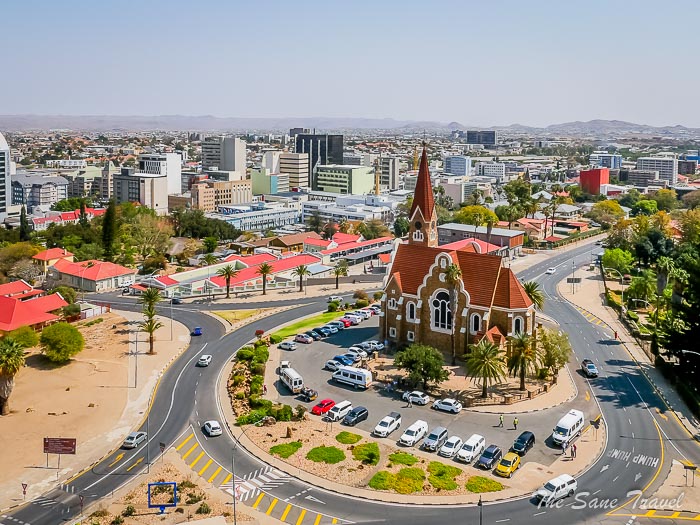 The Independence Memorial Museum serves as a tribute to Namibia's struggle for independence, showcasing artefacts and exhibits related to the country's anti-colonial resistance. The museum, opened in 2014, provides insight into Namibia's journey to independence.
The Independence Memorial Museum serves as a tribute to Namibia's struggle for independence, showcasing artefacts and exhibits related to the country's anti-colonial resistance. The museum, opened in 2014, provides insight into Namibia's journey to independence.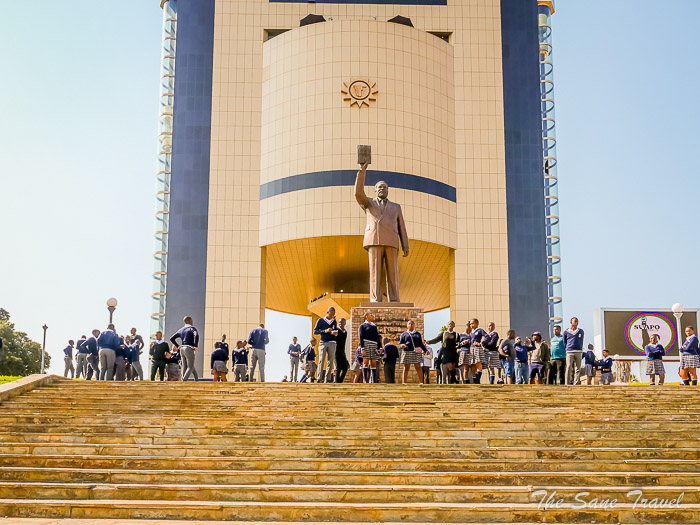
2 Namib-Naukluft National Park
The Namib-Naukluft National Park, situated in western Namibia, spans an area of nearly 50,000 square kilometres, making it the largest national park in Africa and the fourth largest globally. Known for its spectacular representation of the beauty of the Namib Desert – the oldest desert in the world – the park features vividly coloured, towering sand dunes, impressive mountains, naturally formed canyons and vast gravel plains.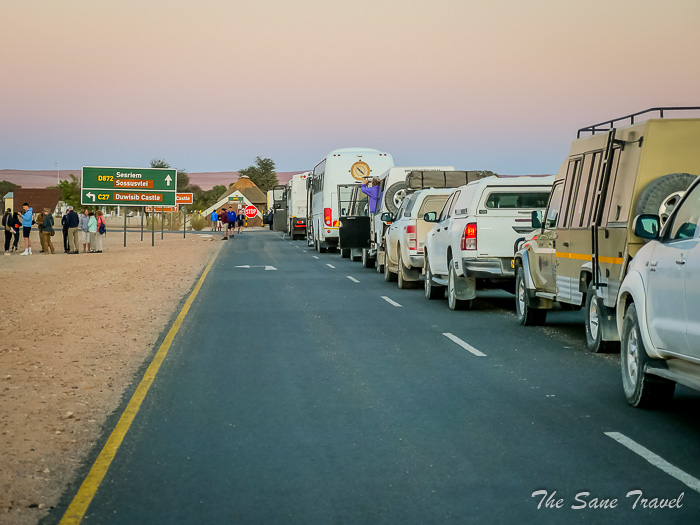
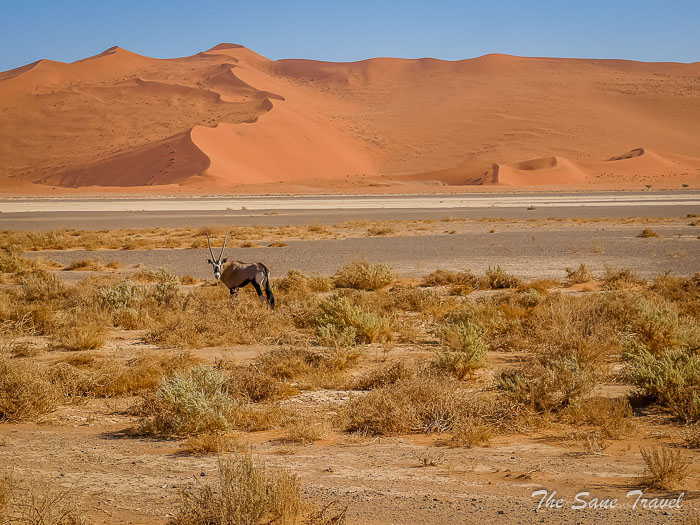 Key highlights of the Namib-Naukluft National Park include the breathtaking dunes of Sossusvlei and Deadvlei, along with the striking landscapes of Sesriem Canyon, Kuiseb Canyon and Kuiseb Pass.
Key highlights of the Namib-Naukluft National Park include the breathtaking dunes of Sossusvlei and Deadvlei, along with the striking landscapes of Sesriem Canyon, Kuiseb Canyon and Kuiseb Pass.
3 Dunes of Sossusvlei
The stunning dunes of Sossusvlei in the Namib Desert rank among the tallest in the world and are a popular destination for travellers and photographers, thanks to their incredible beauty and ample photographic opportunities. Dune 45, Elim Dune and Big Daddy are some of the most popular dunes in the area. At 170 metres tall, Dune 45 is named for being 45 miles away from the nearest town, Sesriem. The dunes exhibit a vibrant reddish-orange colour due to oxidised iron, with hues that can range from red to pink or yellowy-beige, depending on the light. Climbing the dunes is possible, but it requires effort and often results in sand getting into your shoes.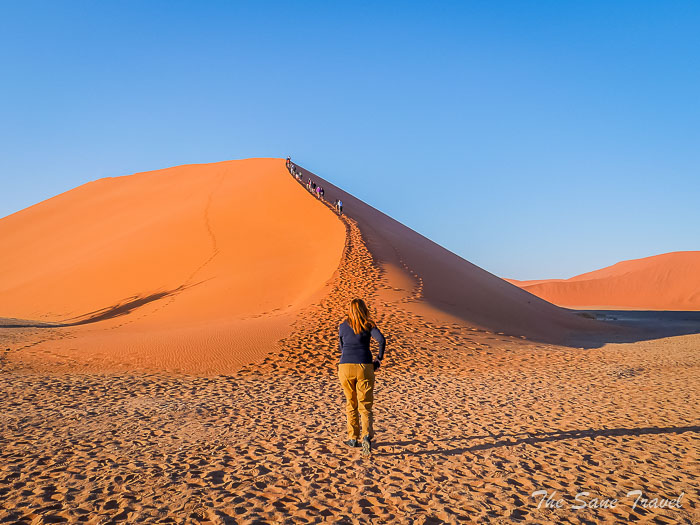
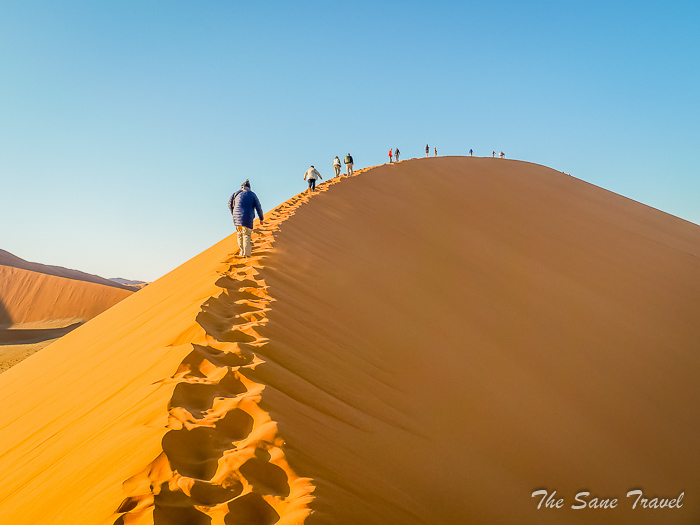
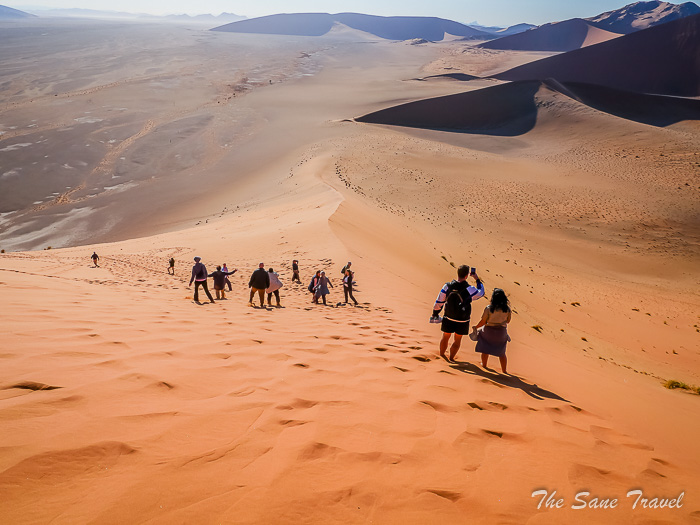
4 Deadvlei
Near Sossusvlei lies the impressive Deadvlei, a dry pan that has been isolated from the Tsauchab River by a large dune. This isolation has led to a collection of dead camelthorn trees that have been preserved by the extremely arid climate, preventing them from decomposing. The trees in Deadvlei died around 600–700 years ago, leaving behind their nearly black skeletal remains. Walking among these fossilised trees offers a truly one-of-a-kind experience. The area of Deadvlei and Sossusvlei is known for its inexplicable charm.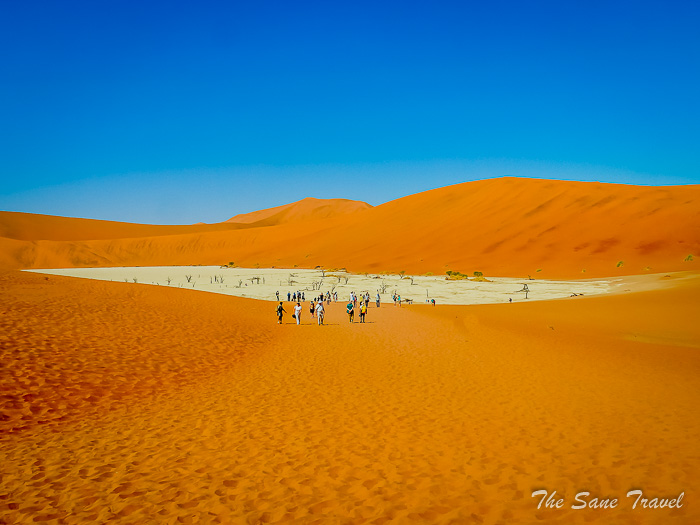
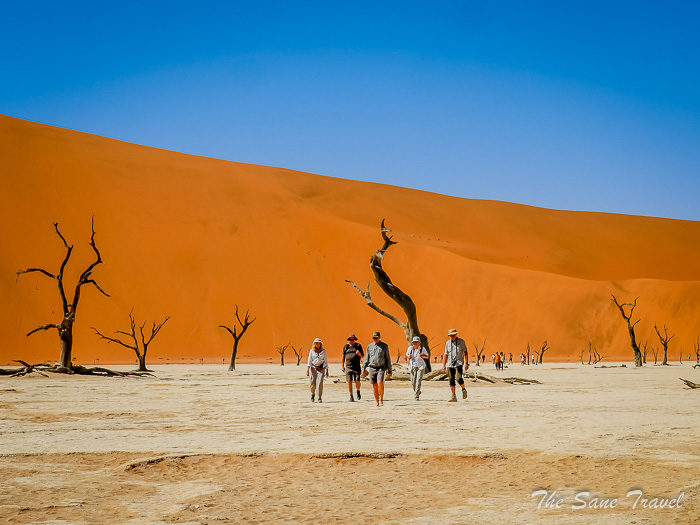

5 Sesriem Canyon
The name 'Sesriem' originates from the six belts that settlers used to reach the water at the bottom of the canyon. The canyon, approximately one kilometre long and up to 30 metres deep, was formed by the Tsauchab River. Rather than a traditional canyon, Sesriem resembles a narrow gap in the ground, with some sections being only two metres wide.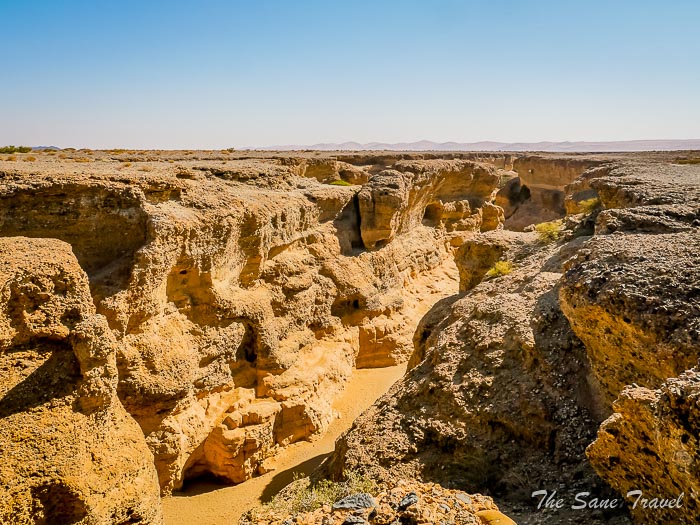
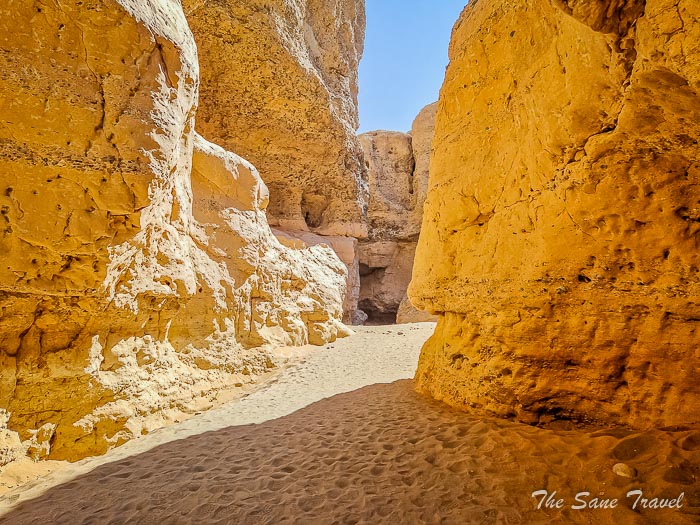
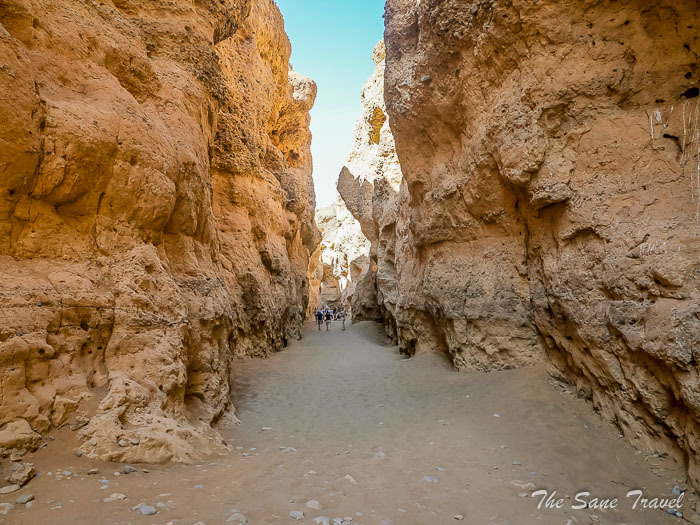 A portion of the canyon always holds water, attracting a variety of wildlife.
A portion of the canyon always holds water, attracting a variety of wildlife.
Location
Sesriem Canyon is a 4.5-kilometre drive from the entrance to Namib-Naukluft National Park. It is approximately 400 kilometres from Swakopmund, and the drive from Windhoek takes around five hours.
6 Kuiseb Canyon and Kuiseb Pass
The Kuiseb Canyon, located in Namibia's Namib Naukluft Park, is a popular destination for tourists and researchers due to its stunning natural beauty. This geological marvel has been formed over millions of years by the erosive forces of the Kuiseb River, which stretches approximately 150 kilometres from the confluence of the Nausgomab River. The canyon features unique rock formations, cliffs and diverse ecosystems. The landscape predominantly comprises schist rock, shaped by erosion into intricate patterns. 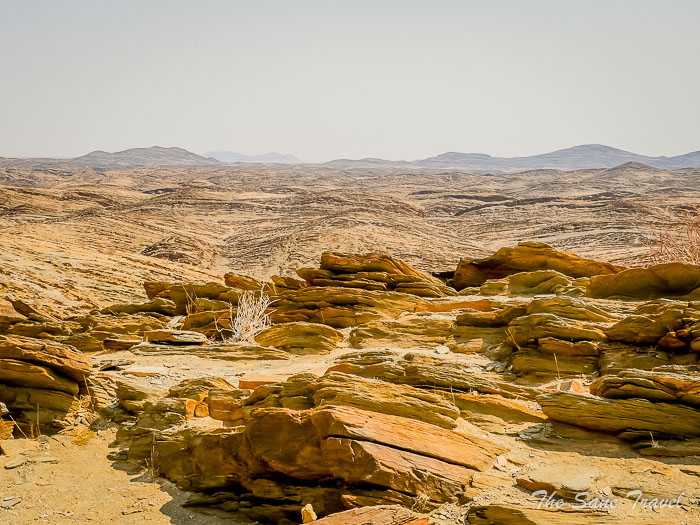
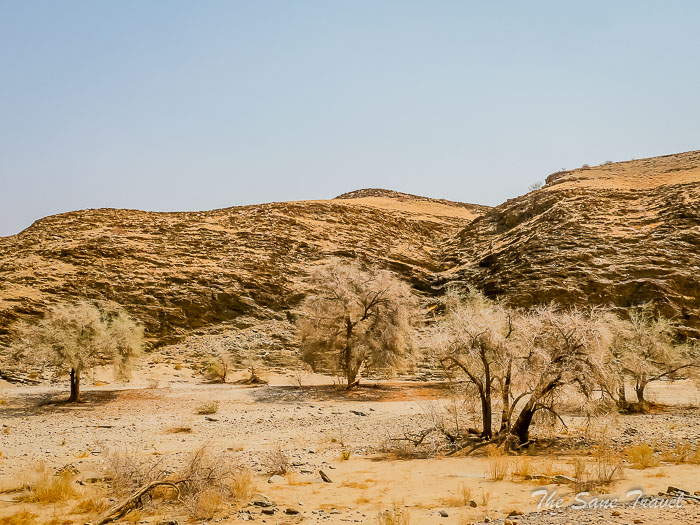 The Kuiseb Pass offers breathtaking canyon views where quiver trees can also be found. Named after the Bushman hunters who used their branches to make quivers for their arrows in the 17th century, quiver trees are slow-growing plants that store water in their leaves, trunks and branches. These aloes are the only trees of their kind, reaching heights of up to 9 metres, and are exclusive to the Namib Desert.
The Kuiseb Pass offers breathtaking canyon views where quiver trees can also be found. Named after the Bushman hunters who used their branches to make quivers for their arrows in the 17th century, quiver trees are slow-growing plants that store water in their leaves, trunks and branches. These aloes are the only trees of their kind, reaching heights of up to 9 metres, and are exclusive to the Namib Desert.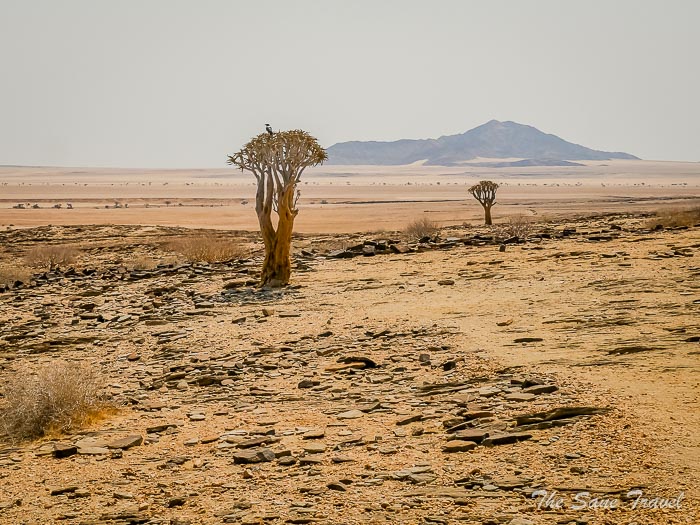
Location
Kuiseb Pass is about 175 kilometres from Swakopmund and 210 kilometres from Windhoek.
7 Walvis Bay
Walvis Bay, a port city and natural harbour on Namibia's west coast, has a complex political history due to its strategic location. After extensive diplomacy, it was officially reintegrated into Namibia in 1994, four years after the country gained independence. 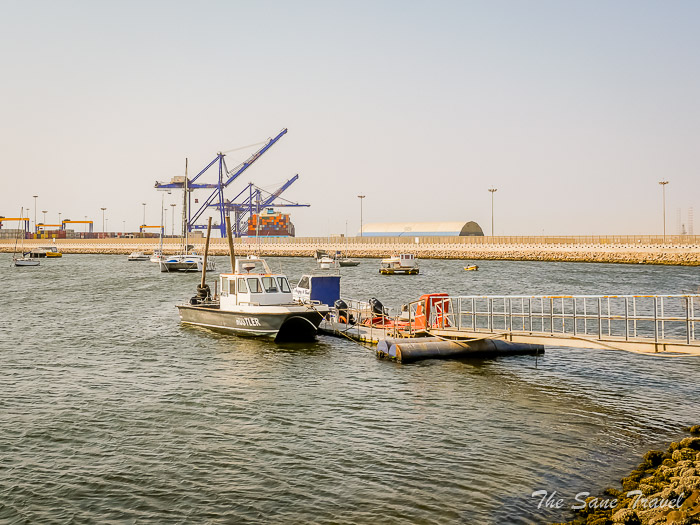 Known for its abundant wildlife, Walvis Bay is a popular tourist destination. The bay is rich in plankton and marine life, which historically attracted a large number of southern right whales, inspiring its name derived from the Afrikaans term for 'Whale Bay'. On the south side of Walvis Bay lies a large lagoon, home to tens of thousands of birds, including numerous flamingos.
Known for its abundant wildlife, Walvis Bay is a popular tourist destination. The bay is rich in plankton and marine life, which historically attracted a large number of southern right whales, inspiring its name derived from the Afrikaans term for 'Whale Bay'. On the south side of Walvis Bay lies a large lagoon, home to tens of thousands of birds, including numerous flamingos. 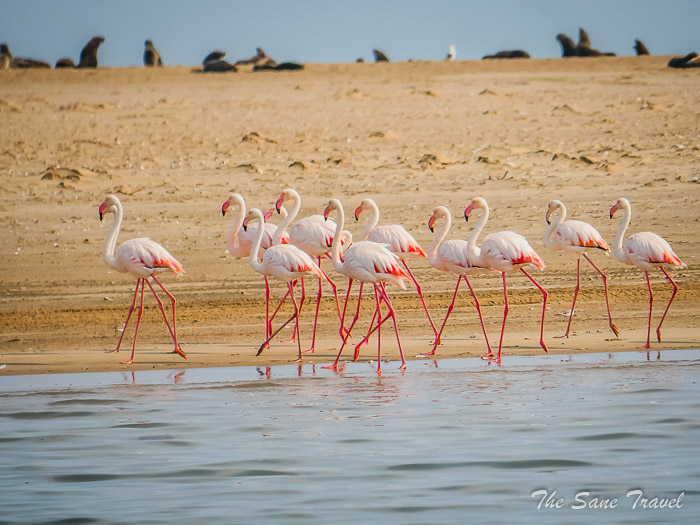 The lagoon, salt pans and bird sanctuary collectively form the Walvis Bay Wetlands, a vital coastal wetland area in Southern Africa. During the summer months, over 150,000 migratory birds flock to the bay. Visitors can observe great white pelicans, Cape fur seals, bottlenose dolphins, greater flamingos and Cape gannets. Boat tours from Walvis Bay offer a close-up view of dolphins and Cape fur seals.
The lagoon, salt pans and bird sanctuary collectively form the Walvis Bay Wetlands, a vital coastal wetland area in Southern Africa. During the summer months, over 150,000 migratory birds flock to the bay. Visitors can observe great white pelicans, Cape fur seals, bottlenose dolphins, greater flamingos and Cape gannets. Boat tours from Walvis Bay offer a close-up view of dolphins and Cape fur seals.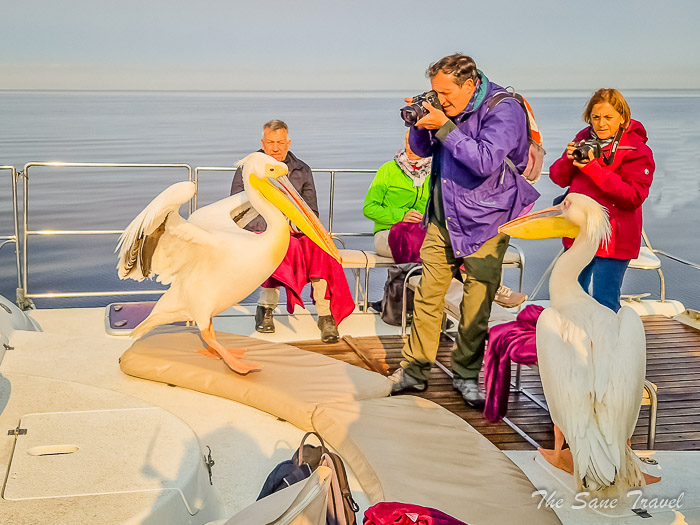
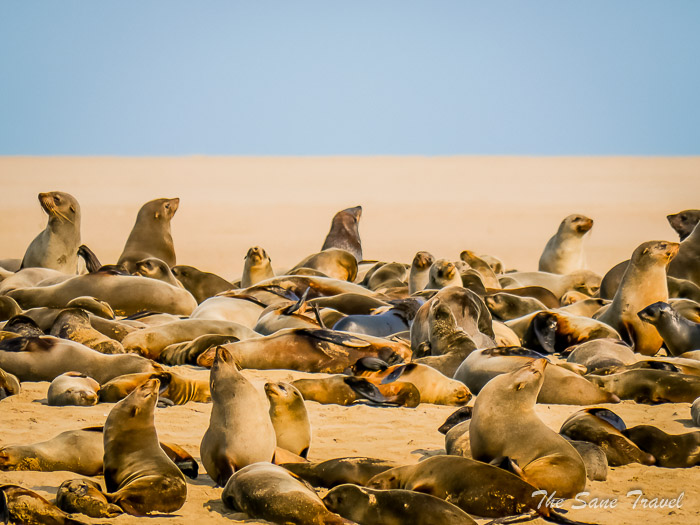
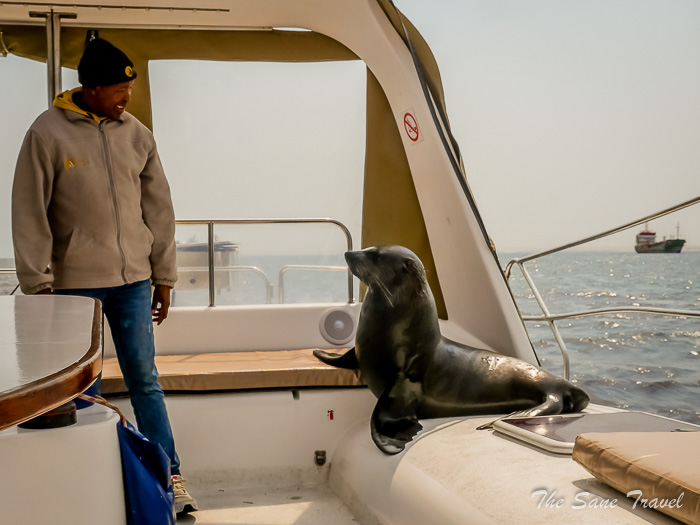
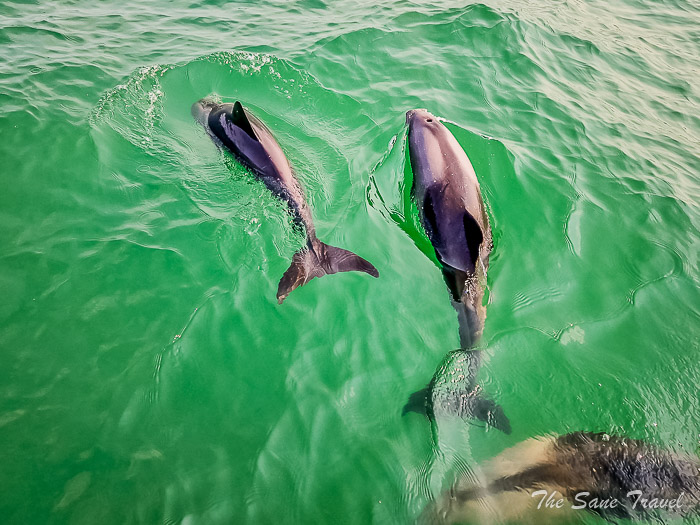
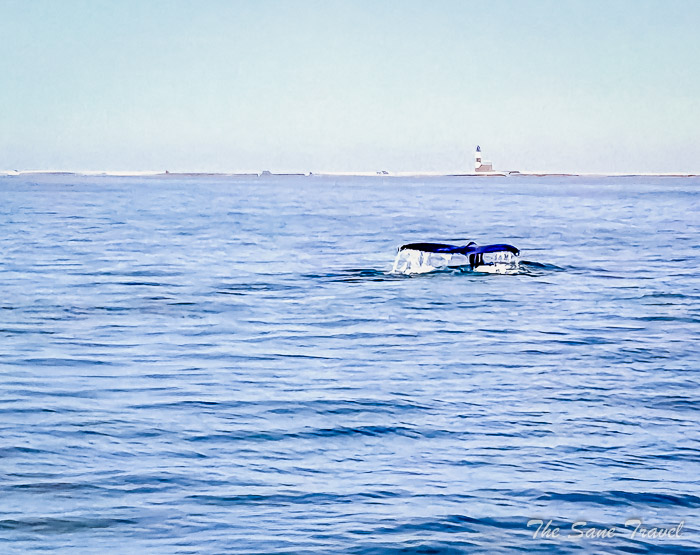
8 Swakopmund
Swakopmund, meaning 'Mouth of the Swakop' in German, is a coastal city in northwestern Namibia, located 280 kilometres west of Windhoek. Positioned centrally along Namibia's Atlantic coastline, it serves as a key town for tourists travelling across the country. Built during the German Colonial period, Swakopmund exudes a quaint, charming atmosphere reminiscent of a small German village frozen in time. 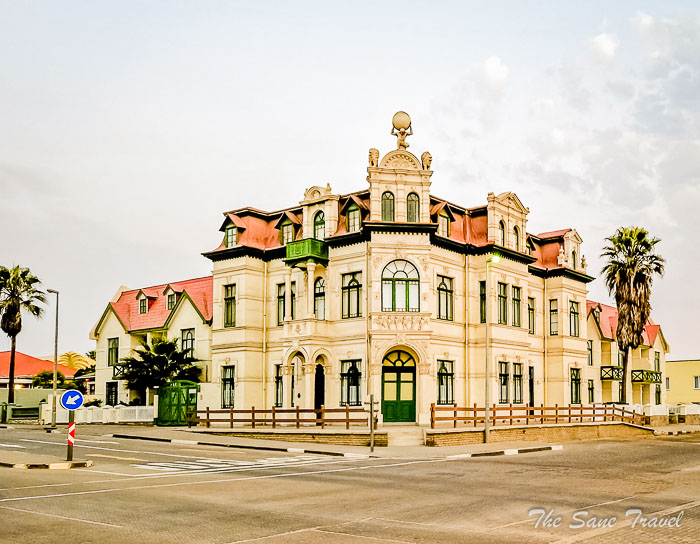
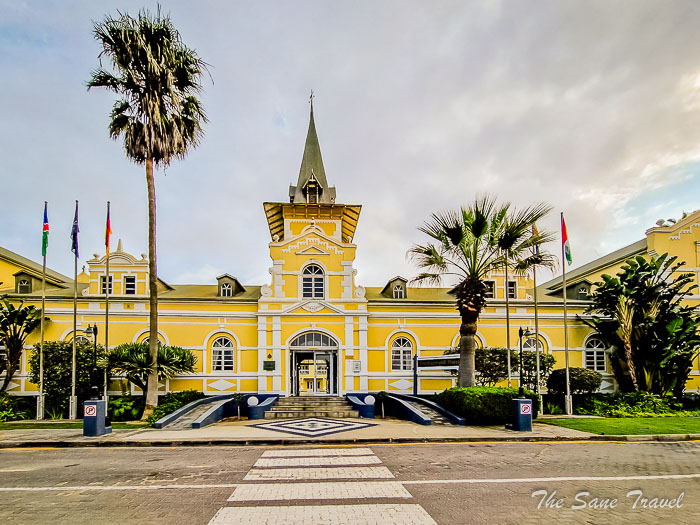
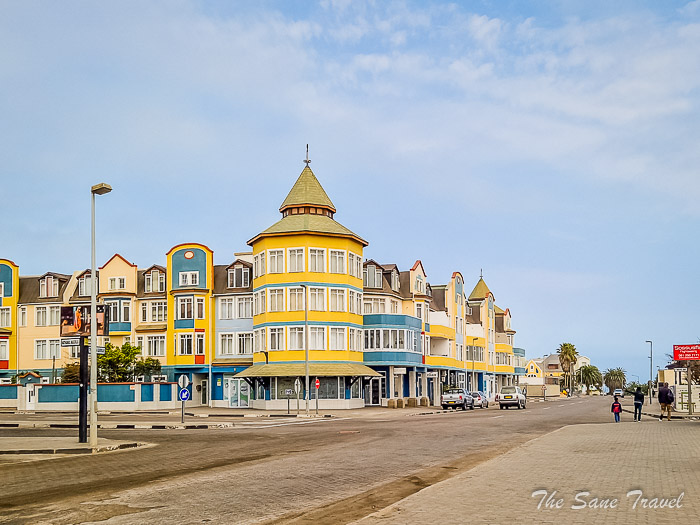 The town serves as a travel hub, linking routes to Etosha in the north, Windhoek in the east and Sossusvlei in the south. Known for its beauty and popularity as a holiday destination, Swakopmund is just a three-hour drive from Windhoek, providing a refreshing escape from the heat and hustle of city life to enjoy the ocean and waves. The town offers a wide range of tours and activities and serves as a gateway to Skeleton Coast Park and Dorob National Park.
The town serves as a travel hub, linking routes to Etosha in the north, Windhoek in the east and Sossusvlei in the south. Known for its beauty and popularity as a holiday destination, Swakopmund is just a three-hour drive from Windhoek, providing a refreshing escape from the heat and hustle of city life to enjoy the ocean and waves. The town offers a wide range of tours and activities and serves as a gateway to Skeleton Coast Park and Dorob National Park.
Location
Swakopmund is about 360 kilometres from Windhoek.
9 Brandberg Mountains
The Brandberg Mountain Range is located in the Erongo region in western Namibia, approximately 90 kilometres from the Atlantic Ocean. With an average height of 2,500 metres, it towers impressively over its surroundings by about 2,000 metres. The Brandberg, measuring 30 kilometres in length and 23 kilometres in width, got its name from the colourful hues cast by the sunset on the mountains. Renowned for its numerous ancient rock paintings, the mountains hold an estimated 50,000 artworks scattered across their slopes. These paintings depict a variety of subjects, including warriors, hunters and various animals. The most famous painting, known as the White Lady, was discovered in 1917 by Reinhard Maack, the first European to reach the Konigstein summit. Initially interpreted as a warrior, the painting was later believed to represent a white lady by the French priest Henri Breuil in 1955. Despite modern belief that the painting depicts a San warrior or shaman, the name 'White Lady' has persisted. 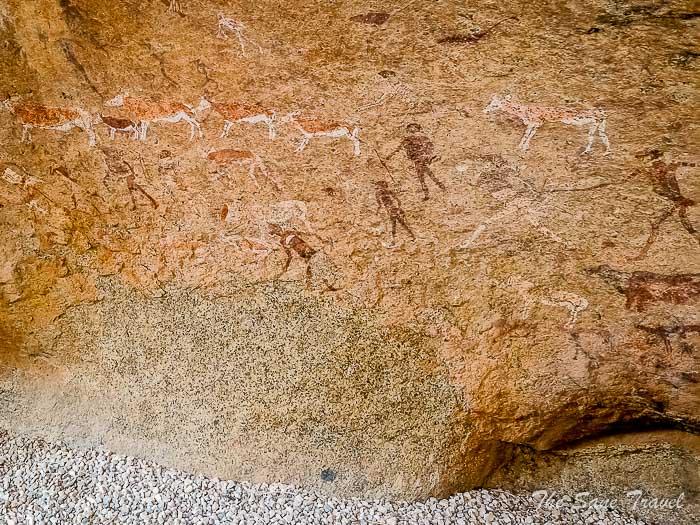 The path to the painting is around three kilometres long, and visitors must be accompanied by a local guide to prevent vandalism.
The path to the painting is around three kilometres long, and visitors must be accompanied by a local guide to prevent vandalism. 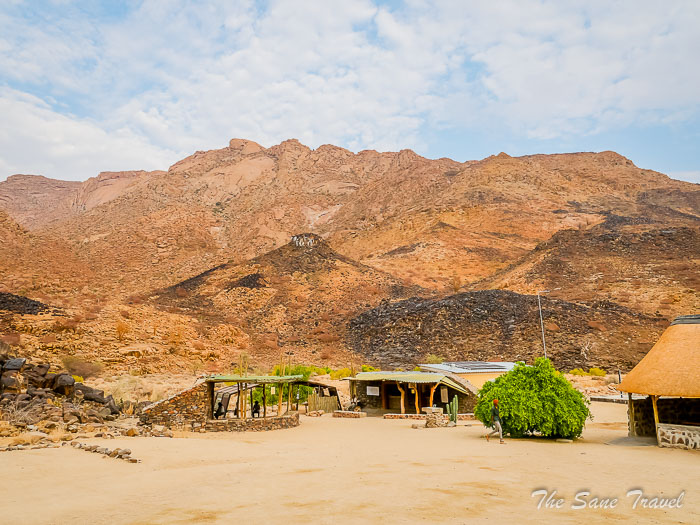
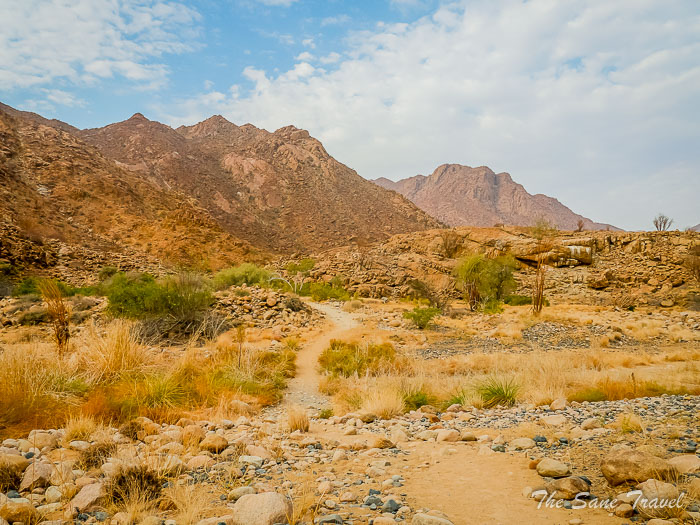
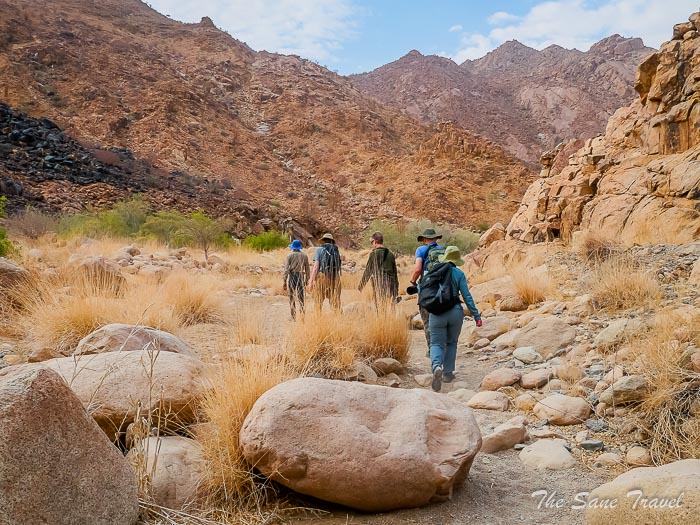
Location
Brandberg Mountains are about 230 kilometres from Swakopmund.
10 Vingerklip
The Vingerklip, a 35-metre-high rock pillar, is one of Namibia's most striking rock formations. Standing tall in the Ugab terraces, it has a unique shape resembling a finger pointing towards the sky, which has intrigued geologists for many years. Its slender form and balanced proportions make it visually appealing. Beyond its geological importance, the Vingerklip holds cultural significance for the indigenous communities of Namibia, who consider it a sacred site with deep roots in folklore and spiritual beliefs.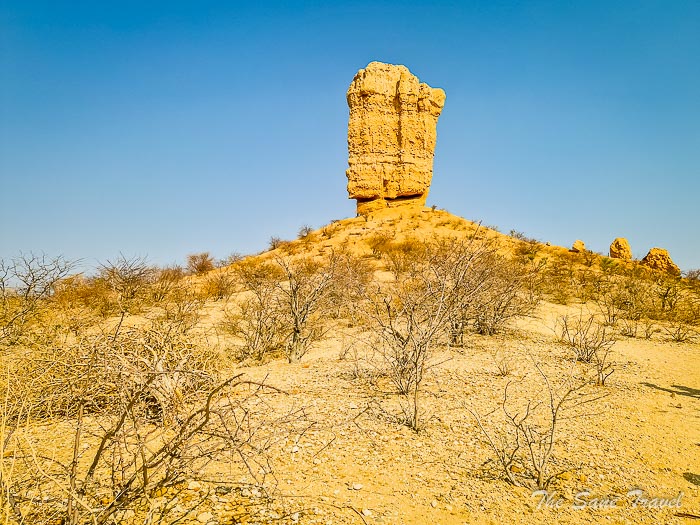
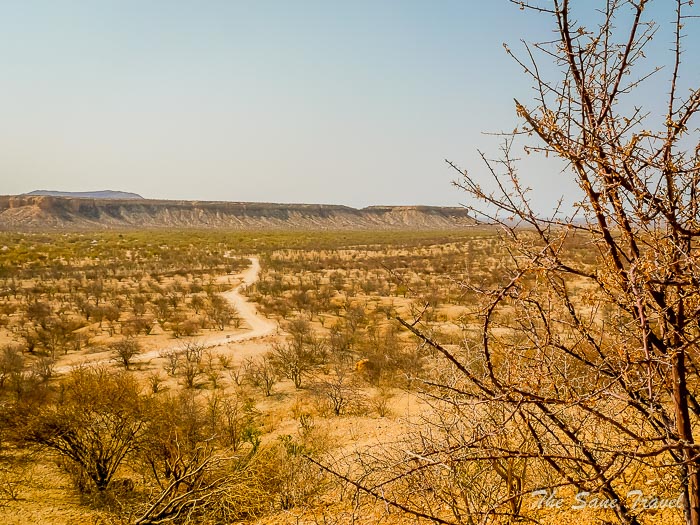
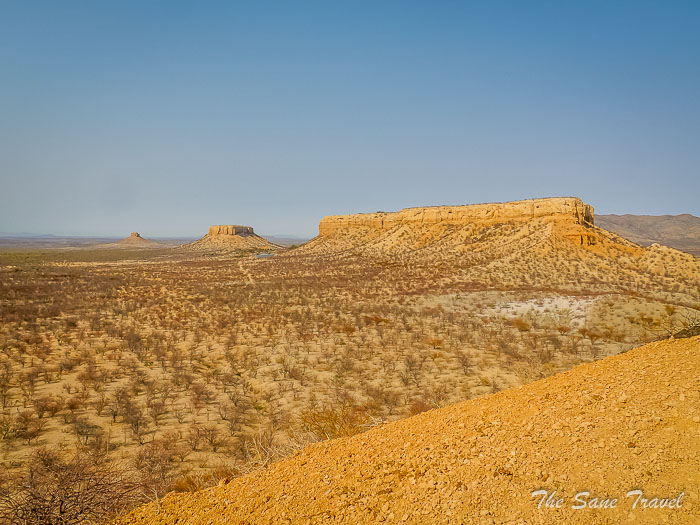
Location
Vingerklip is 420 kilometres from Windhoek and 370 kilometres from Swakopmund, making it a short detour on your journey from Swakopmund to Etosha.
11 Etosha National Park
Etosha National Park is famous for its unique salt pan, a natural wonder so large it can be seen from space. It ranks among the most easily accessible game reserves in Namibia and Southern Africa, featuring a diverse range of species that can be easily spotted around the waterholes. 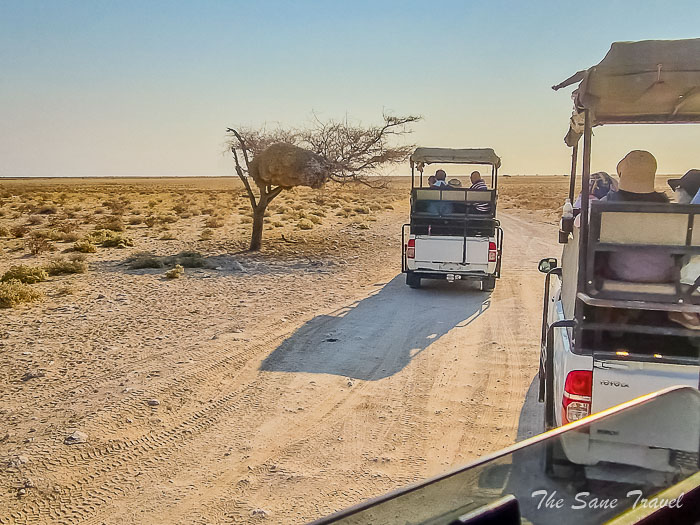 Common sightings include wildebeest, zebras, lions, elephants and more.
Common sightings include wildebeest, zebras, lions, elephants and more.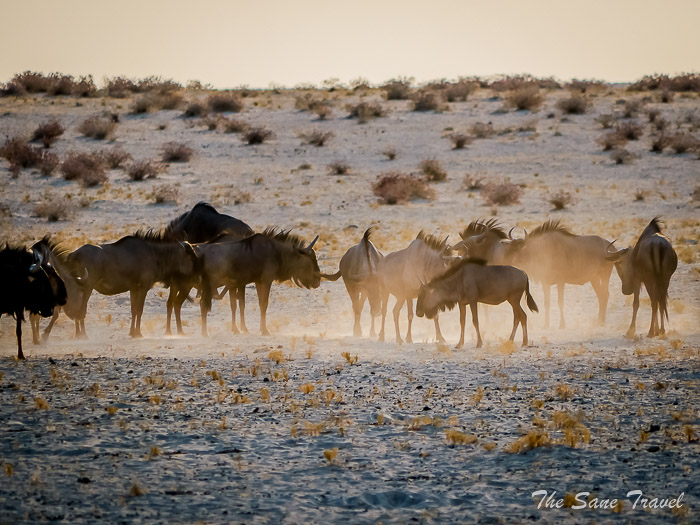
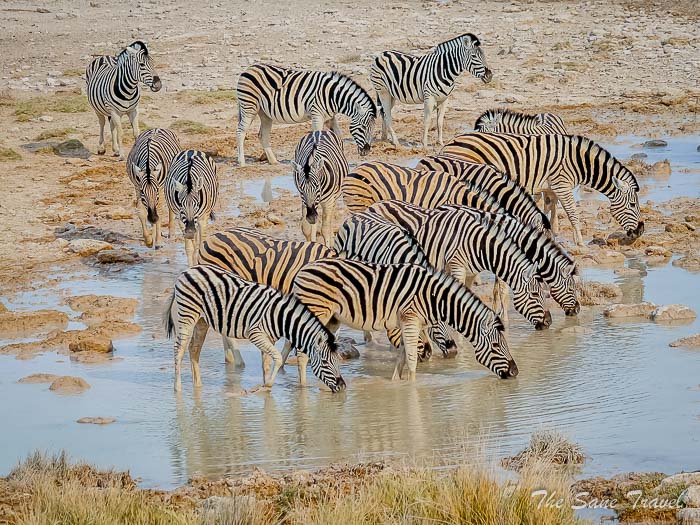
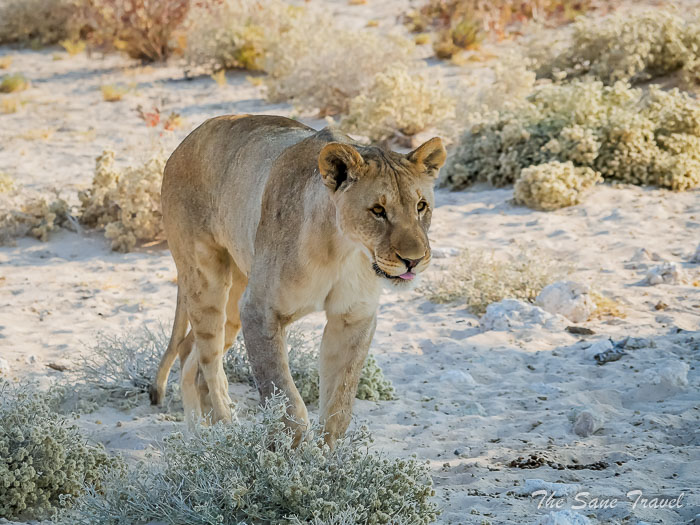
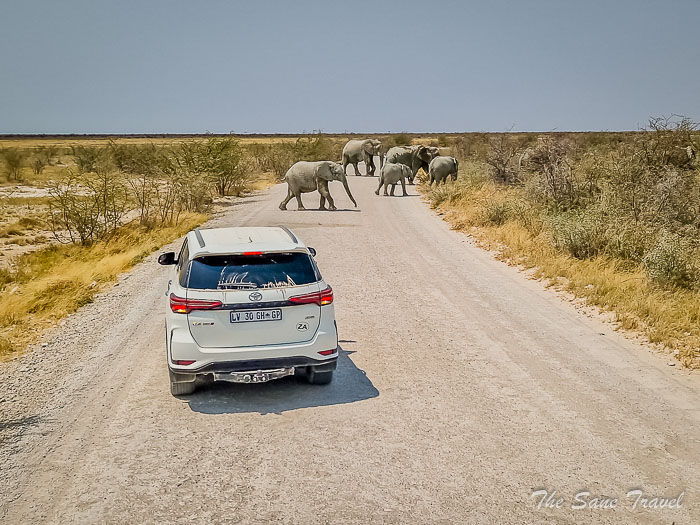 Visitors are encouraged to bring plenty of camera memory and patience to capture the impressive wildlife. Etosha is also an excellent spot for birdwatching, offering malaria-free conditions, easy access by sedan cars, and a wide range of accommodation options and amenities at the rest camps.
Visitors are encouraged to bring plenty of camera memory and patience to capture the impressive wildlife. Etosha is also an excellent spot for birdwatching, offering malaria-free conditions, easy access by sedan cars, and a wide range of accommodation options and amenities at the rest camps.
Location
Etosha is about 500 kilometres from Swakopmund and 420 kilometres from Windhoek.
12 Waterberg Plateau National Park
The area surrounding the Waterberg, which includes the town of Otjiwarongo and the Hochfeld region, is conveniently located for travellers heading north from Windhoek and towards Etosha National Park. Waterberg, a large table mountain, stretches about 50 kilometres long and up to 16 kilometres wide, rising to 200 metres above the surrounding plains. 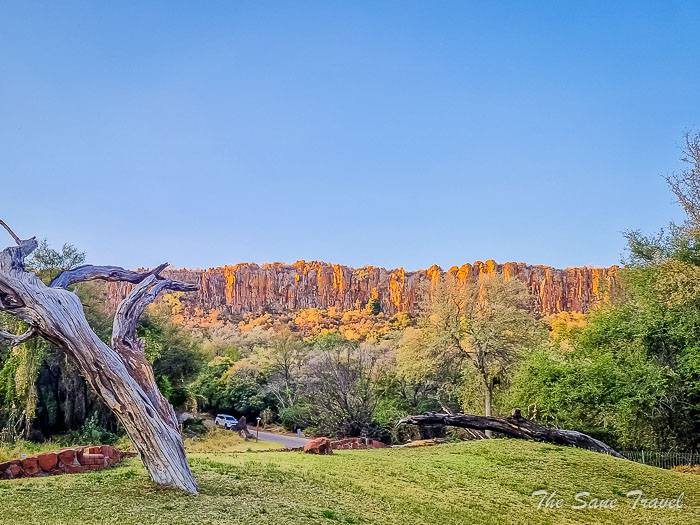 This sandstone mountain is home to unique vegetation and several permanent springs at its base, giving it its fitting name. In 1904, a significant battle took place at Waterberg between Herero warriors and German colonial forces, resulting in a devastating defeat for the Herero fighters and the loss of many lives during their retreat to Botswana. Waterberg, renowned for the nature reserve established on its plateau in 1972, is home to a rich diversity of wildlife such as buffalo, white and black rhinos, giraffes, elands, and both roan and sable antelopes.
This sandstone mountain is home to unique vegetation and several permanent springs at its base, giving it its fitting name. In 1904, a significant battle took place at Waterberg between Herero warriors and German colonial forces, resulting in a devastating defeat for the Herero fighters and the loss of many lives during their retreat to Botswana. Waterberg, renowned for the nature reserve established on its plateau in 1972, is home to a rich diversity of wildlife such as buffalo, white and black rhinos, giraffes, elands, and both roan and sable antelopes.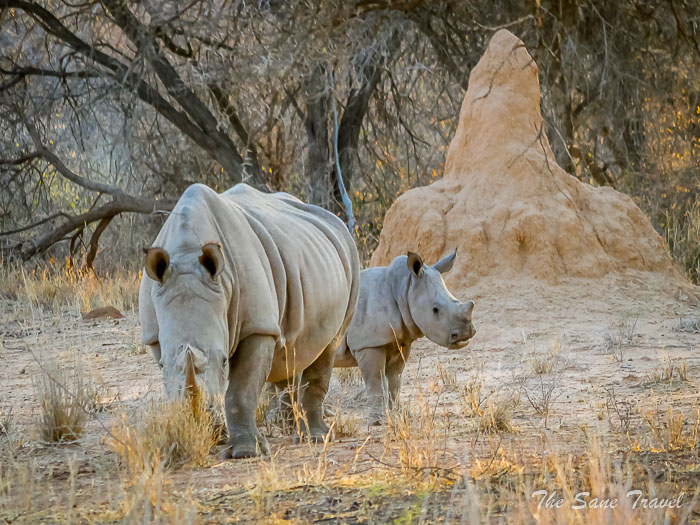
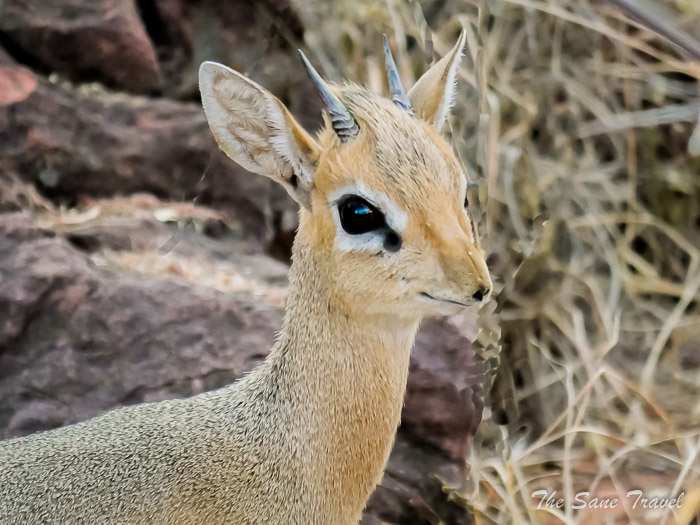 Visitors can participate in guided drives on the plateau or explore the 48-kilometre unguided hiking path and guided wilderness trails. Reservations are required for both guided and unguided hiking trails on the plateau.
Visitors can participate in guided drives on the plateau or explore the 48-kilometre unguided hiking path and guided wilderness trails. Reservations are required for both guided and unguided hiking trails on the plateau.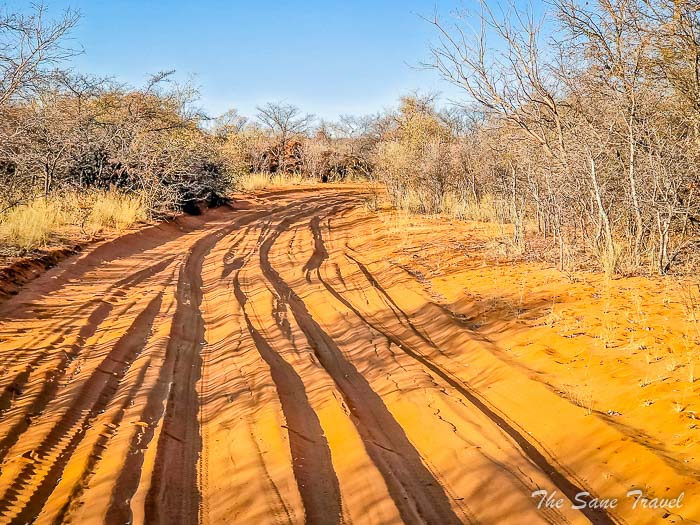
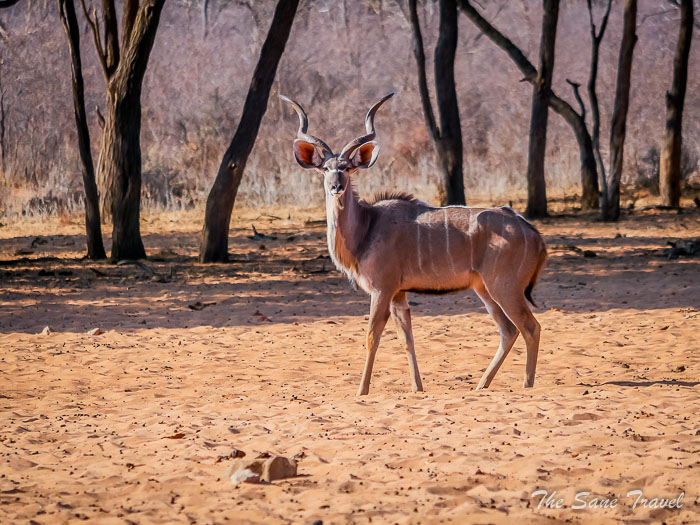
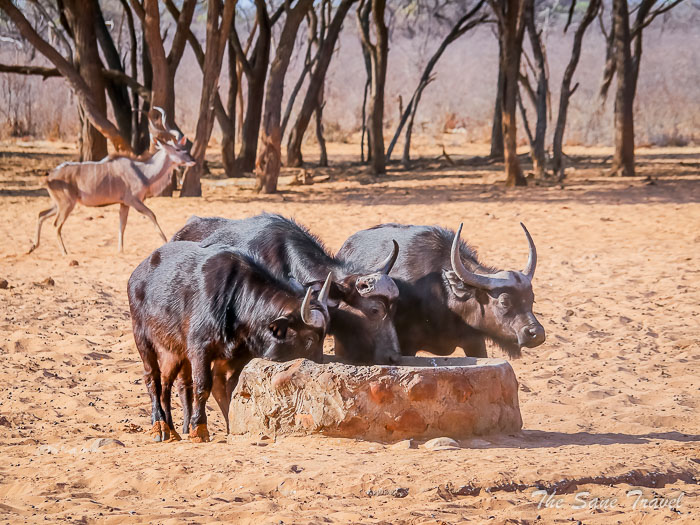
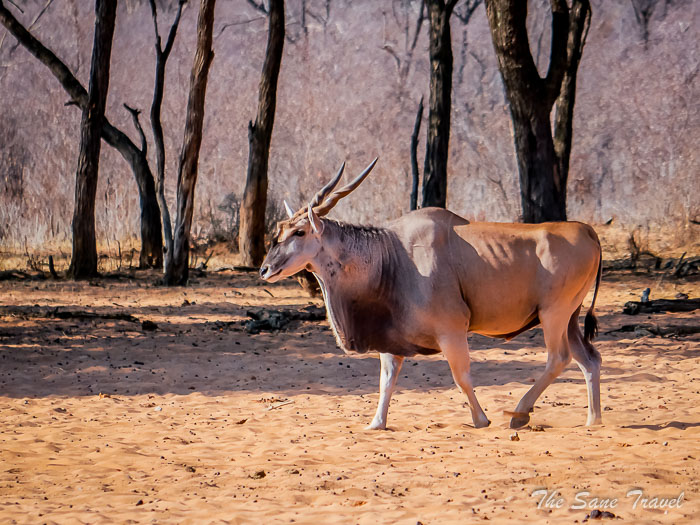
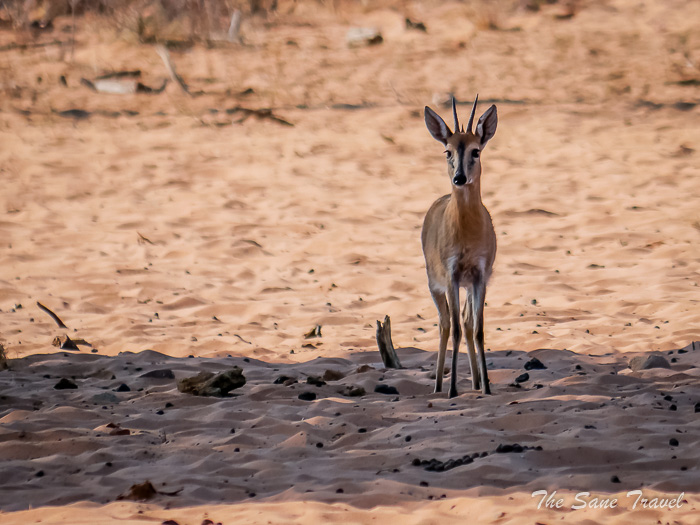
Location
Waterberg is situated 230 kilometres north of Windhoek and 50 kilometres east of Otjiwarongo.
Practical information
If you are considering a trip to Namibia, I recommend reviewing my packing list for your journey. I have also included a map with the locations discussed in my article to help you plan your Namibia travels.
Like it? Pin it!
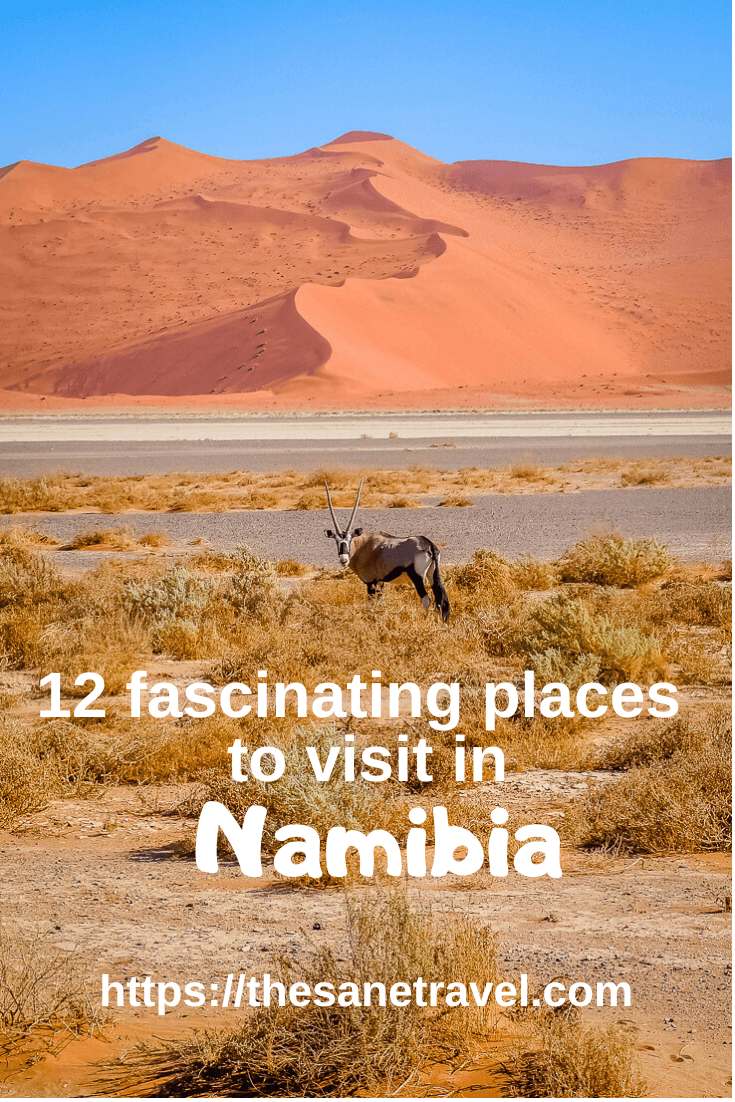
What did you think? Have you been to Namibia? I would love to hear from you, so please add your comment below.
Author: Anita Sane

About the author
Anita is a part-time traveller, passionate photographer and a retired career woman from Latvia, travelling mostly solo for more than 15 years. She is a skilled travel planner who plans and executes her travels by herself. Anita wants to show you how to travel the world and open your mind to new experiences. Follow her on Facebook, Instagram, Pinterest, Twitter and Bloglovin.

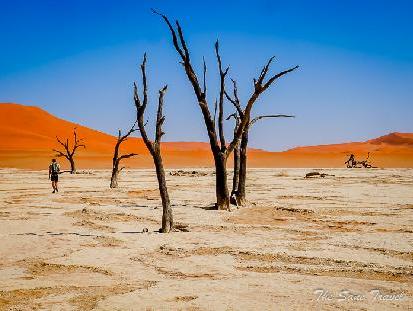
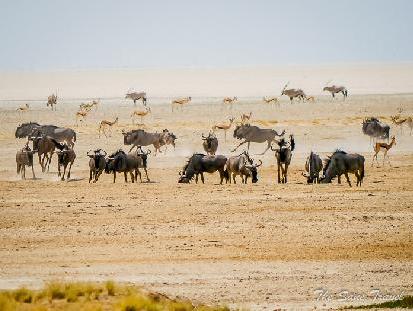
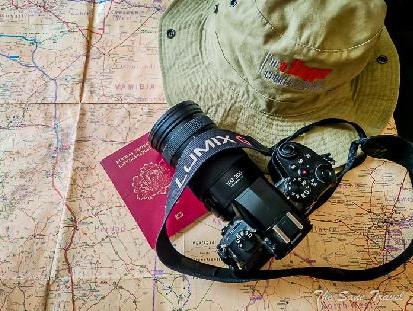
I guess I will have to go back!
Report
My comments